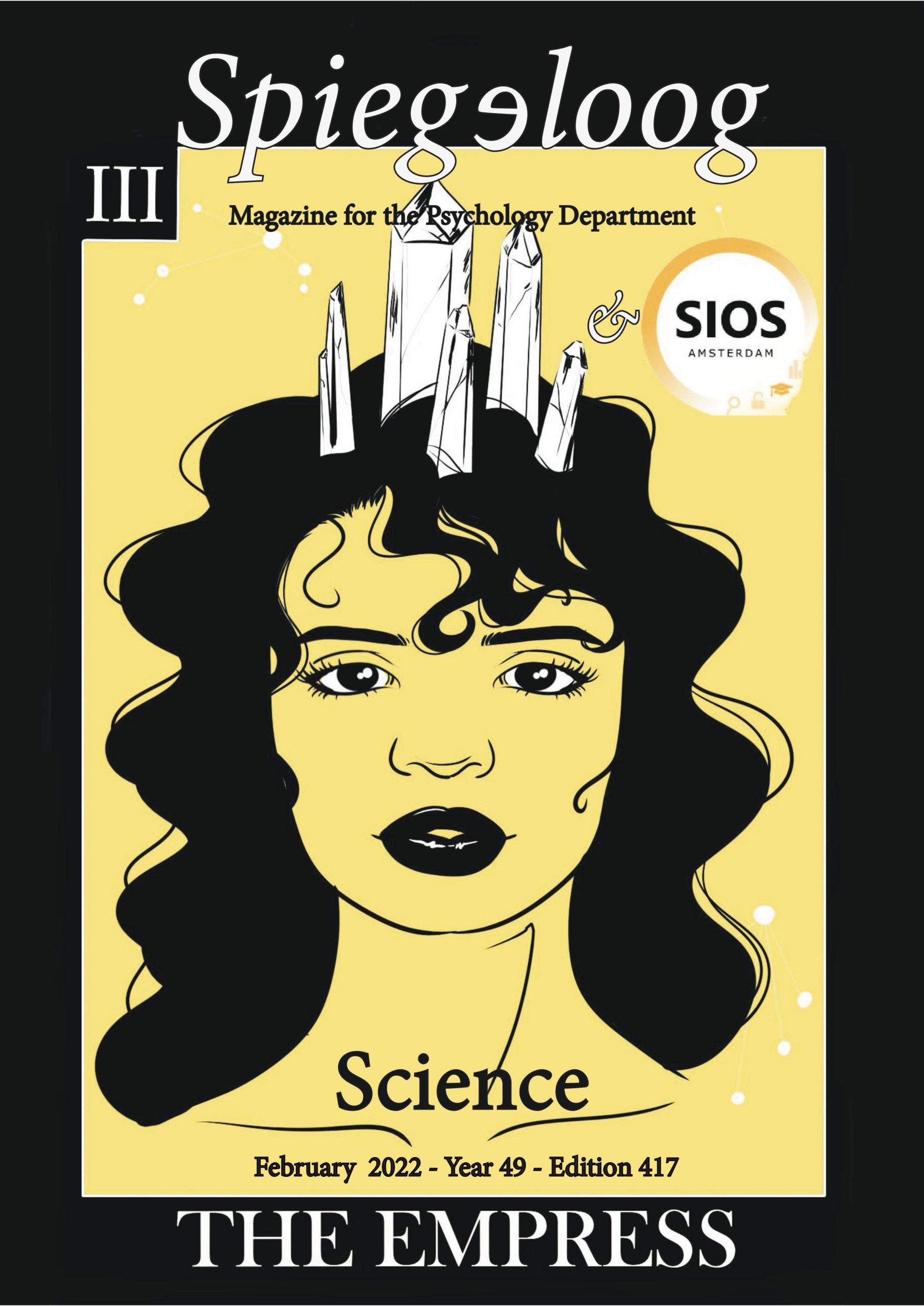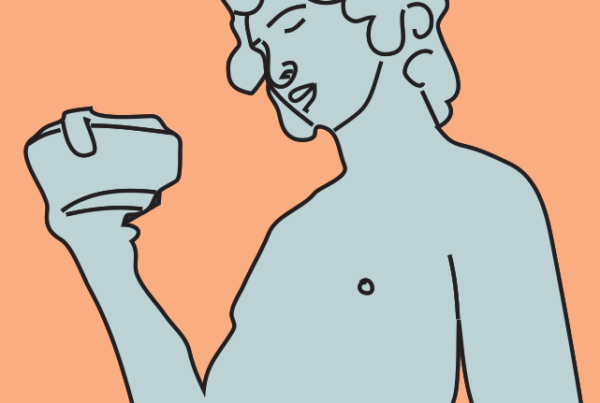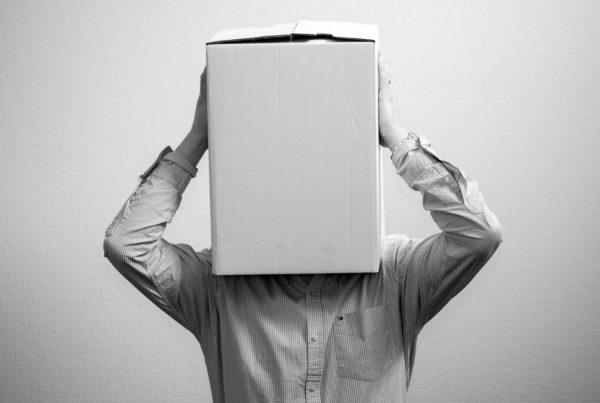
Dear readers,
Passion for (psychological) science and research is what brings the Spiegeloog board together. For this issue, we were very happy to welcome more passionate scientists and collaborate with the Student Initiative for Open Science (SIOS) Amsterdam. Now we are excited to present the excellent product of this collaboration, Spiegeloog 417: Science.

Cover by Nina Kollof
Belief systems are all around us. We can believe in what tarot cards or horoscopes tell us, or we can claim to be more ‘rational’ and believe in what is ‘scientific’. But what is science? Science is essentially a result of certain belief systems about the world, particularly on how the world should be looked at. Together with the SIOS board, we delved into the many ways science is practiced. From generating a hypothesis to reporting the results, we looked into every step of the research cycle and discussed how they can be improved. “What is good science?” was the grand question of our issue, and we can’t wait to share our findings and reflections on it.
For this issue’s Tabula Rasa, Sophie reviewed Four Thousand Weeks from Oliver Burkeman. In her delightful review, she gives an insight into Brukeman’s recommendations on how to manage time (or how not to, as Sophie puts it) and shares her takeaways. Following this, Mualla reviewed the movie Don’t Look Up for Camera Obscura. In her critical review, she discusses the reasons why she found the movie refreshing but highly disappointing at the same time. Still on the topic of climate change, on this issue’s Terra column, Ella talks about the place of psychologists next to the other climate change scientists. She criticises the why psychology is neglected in climate change research, and explains the important role that it actually plays. Lastly, Milena finishes off the issue with her Bacchus on critical thinking. She reflects on the importance of critical thinking, but also why it is difficult to define.
In her article, Iris (SIOS) talks about the importance of the Open Science movement for students and how SIOS Amsterdam came about at the UvA. She mentions the help that SIOS provides to psychology students and encourages all to contribute to open science. Nita (SIOS) then talks about the importance of teaching critical thinking skills to students at the university and why this is important for good science practices. She points out the differences in statistical training between different departments (at the UvA) and their potential consequences on research. Easy access to scientific publications is just as important as raising critical scientists. Elias (SIOS) shares his experience with the privilege that the UvA VPN provided him during his studies. While some universities like the UvA have access to many prestigious scientific journals, this is not the case for all institutions. He discusses the main reasons behind this and looks into the solutions. Following the open science discussions, Rosa questions whether the cancel culture is threatening academic freedom at universities. She compares academic freedom and freedom of speech to each other and highlights the critical differences between the two. Should we be concerned about our academic freedom, or the problem is actually elsewhere?
Magda and Sjoerd bring together two different fields of science, Psychology and Computational Science. They put their own respective fields’ knowledge together and question whether brains and computers are comparable. Diving into psychological science, Nitya talks about a crisis, that is different than the famous replication one. She questions the strength of psychological theories and discusses two ways that are proposed to make them more reliable. Going back to open science, Julius (SIOS) talks about the key role that open data has played in dealing with the pandemic. It is a great demonstration of how beneficial open science is. Similar to Julius, Leonhard (SIOS) talks about the benefits of open data and code-sharing. He explains how this helps science to advance quicker, and is a great advantage for students as well.
We are very proud of this issue’s richness, and also very much enjoyed collaborating with SIOS. We hope you find all the pieces interesting, and become (open & fair) science enthusiasts as well!
Enjoy the new issue!
Mualla & Milena
Dear readers,
Passion for (psychological) science and research is what brings the Spiegeloog board together. For this issue, we were very happy to welcome more passionate scientists and collaborate with the Student Initiative for Open Science (SIOS) Amsterdam. Now we are excited to present the excellent product of this collaboration, Spiegeloog 417: Science.

Cover by Nina Kollof
Belief systems are all around us. We can believe in what tarot cards or horoscopes tell us, or we can claim to be more ‘rational’ and believe in what is ‘scientific’. But what is science? Science is essentially a result of certain belief systems about the world, particularly on how the world should be looked at. Together with the SIOS board, we delved into the many ways science is practiced. From generating a hypothesis to reporting the results, we looked into every step of the research cycle and discussed how they can be improved. “What is good science?” was the grand question of our issue, and we can’t wait to share our findings and reflections on it.
For this issue’s Tabula Rasa, Sophie reviewed Four Thousand Weeks from Oliver Burkeman. In her delightful review, she gives an insight into Brukeman’s recommendations on how to manage time (or how not to, as Sophie puts it) and shares her takeaways. Following this, Mualla reviewed the movie Don’t Look Up for Camera Obscura. In her critical review, she discusses the reasons why she found the movie refreshing but highly disappointing at the same time. Still on the topic of climate change, on this issue’s Terra column, Ella talks about the place of psychologists next to the other climate change scientists. She criticises the why psychology is neglected in climate change research, and explains the important role that it actually plays. Lastly, Milena finishes off the issue with her Bacchus on critical thinking. She reflects on the importance of critical thinking, but also why it is difficult to define.
In her article, Iris (SIOS) talks about the importance of the Open Science movement for students and how SIOS Amsterdam came about at the UvA. She mentions the help that SIOS provides to psychology students and encourages all to contribute to open science. Nita (SIOS) then talks about the importance of teaching critical thinking skills to students at the university and why this is important for good science practices. She points out the differences in statistical training between different departments (at the UvA) and their potential consequences on research. Easy access to scientific publications is just as important as raising critical scientists. Elias (SIOS) shares his experience with the privilege that the UvA VPN provided him during his studies. While some universities like the UvA have access to many prestigious scientific journals, this is not the case for all institutions. He discusses the main reasons behind this and looks into the solutions. Following the open science discussions, Rosa questions whether the cancel culture is threatening academic freedom at universities. She compares academic freedom and freedom of speech to each other and highlights the critical differences between the two. Should we be concerned about our academic freedom, or the problem is actually elsewhere?
Magda and Sjoerd bring together two different fields of science, Psychology and Computational Science. They put their own respective fields’ knowledge together and question whether brains and computers are comparable. Diving into psychological science, Nitya talks about a crisis, that is different than the famous replication one. She questions the strength of psychological theories and discusses two ways that are proposed to make them more reliable. Going back to open science, Julius (SIOS) talks about the key role that open data has played in dealing with the pandemic. It is a great demonstration of how beneficial open science is. Similar to Julius, Leonhard (SIOS) talks about the benefits of open data and code-sharing. He explains how this helps science to advance quicker, and is a great advantage for students as well.
We are very proud of this issue’s richness, and also very much enjoyed collaborating with SIOS. We hope you find all the pieces interesting, and become (open & fair) science enthusiasts as well!
Enjoy the new issue!
Mualla & Milena



